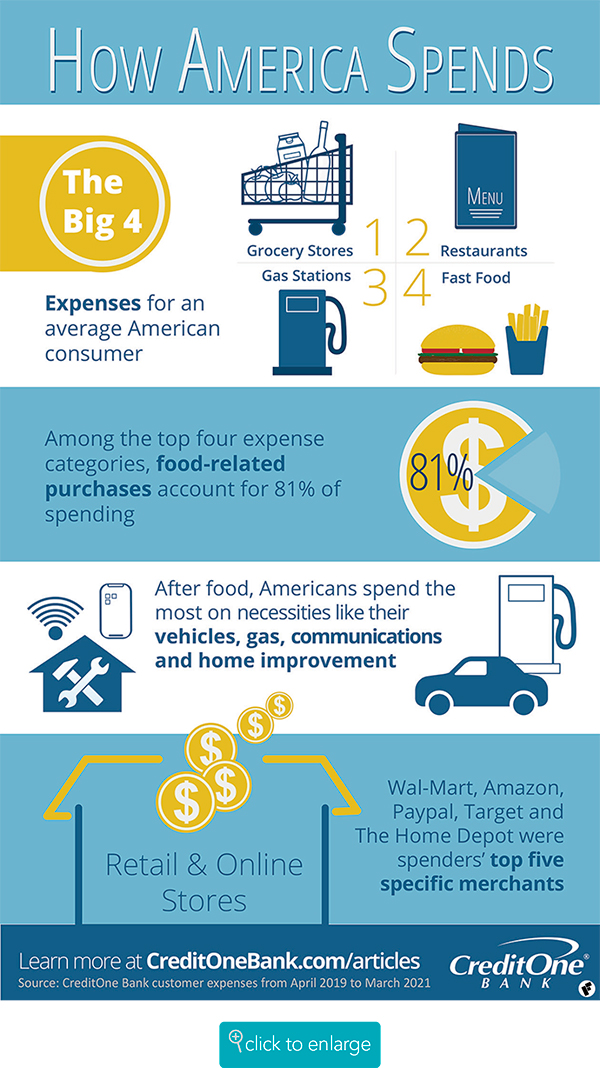(Family Features) Working toward financial stability can be a daunting task, but developing healthy spending habits and practicing smart saving can make it easier to plan for the future and take control of your finances.
Improve your financial stability and security with these tips from the experts at Credit One Bank, a data-driven financial services company that is also one of the largest and fastest-growing credit card issuers in the United States.
Create a Spending Plan and Budget
By building a budget and examining your spending habits, you’re able to see exactly how much money you have coming in and where – or on what – you’re spending it. This is often the first step toward meeting short- and long-term financial goals, whether those involve taking a vacation, paying off debt, buying a new house or saving for retirement.
Add up your household income, including paychecks and other income, such as investments or rental property, then figure your monthly expenses starting with recurring bills like rent or mortgage, car payments, insurance, utilities and subscriptions. Also account for variable expenses like gas, groceries and entertainment. Once you have your income and expenses calculated, look for places you may be able to cut back to help meet your financial goals. Don’t forget to be flexible; your budget and spending will change along with your needs and situation.
Earn Rewards on Everyday Purchases
You can stretch your budget further by taking advantage of rewards offered by your bank or credit card company. For example, some credit cards provide cash back rewards for specific everyday purchases. An option like the Credit One Bank Platinum Rewards Visa is one such credit card. Customers can earn 5% cash back for the first $5,000 of eligible purchases per year on things like gas, groceries, internet, cable, satellite TV and mobile phone services, plus 1% cash back rewards on all other purchases.
“Make sure your rewards are working for you – and not just as a gimmicky signup bonus,” said David Herpers, head of product at Credit One Bank. “Find a credit card that continues to give you more for your everyday spending habits.”
Compare Interest Rates When Opening a Savings Account
When selecting a savings account, look for the highest yield but also consider the minimum balance requirement, any introductory rates that may expire after a set period of time and the ease with which you’re able to access your money and account information. Often, digital banks can offer higher rates than traditional brick-and-mortar branches due to their lower overhead costs. Ensure any bank you consider is a member of the Federal Deposit Insurance Corporation (FDIC) so you can earn a fair rate and protect your money.
Build an Emergency Fund
Emergency funds create a financial buffer that can keep you afloat in times of need without having to rely on high-interest loans or maxing out a line of credit. These funds can be used to pay for large, unexpected expenses such as medical bills, the loss of a job, car repairs or home appliance repair or replacement.
To build your emergency fund, set a monthly savings goal – even an amount as small as $50 per paycheck can make an impact over time – and set up a way for the funds to be automatically transferred to the account each time you get paid to make the task less daunting. Check on the account periodically and adjust if necessary or if your budget allows. A good rule of thumb is to set aside 3-6 months of living expenses.
Keep Track of Your Credit
Your credit score provides lenders and other parties a quick way to get an idea of your financial history and your ability to pay. Having a good credit score typically provides better interest rates and makes it easier to get approval on loans, rent an apartment, take out a mortgage or finance large purchases. Poor credit can saddle you with higher rates and lead to potential loan requests being denied.
To help you understand how different actions affect your credit score, many sites offer free credit reports and tools that allow you to stay up-to-date and track your score over time. Be sure to check reviews and verify the site’s legitimacy before entering your information. Additionally, many credit card companies, including Credit One Bank, provide free access to online credit reports on a regular basis to give customers an easier way to stay on top of their finances.
Understanding Emerging Card Capabilities
Alternative methods of payment, like credit and debit cards, have now been around for decades and have grown in popularity due to their convenience in comparison to cash, but technology has evolved even further to allow for a rise in contactless payment. Consider these capabilities many cards now offer:
Chip (EMV) cards utilize smart technology to store data on the microchip embedded in the card, allowing for an extra level of security with a one-time code generated as part of each transaction to keep payment information more secure than swiping the magnetic strip.
Contactless cards are equipped with near-field communication technology that allows payments to be made at a terminal without swiping or inserting. The card member’s name, billing information and security code are never transmitted when cards bearing the contactless indicator are tapped on an equipped terminal.
Smart device payments can be made by adding your credit or debit card to the wallet app on your smartphone or tablet. Apps can also be added to some smartwatches to make contactless payments at participating merchants even easier.
Find more ways to make your money work for you at CreditOneBank.com/articles.
Photo courtesy of Getty Images (man and woman with computer)








